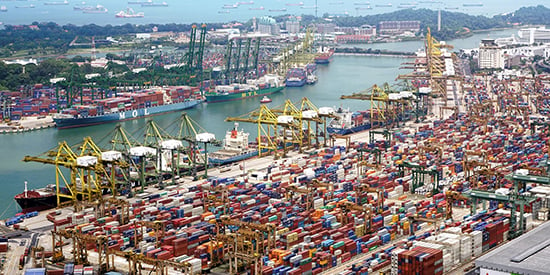Rise of the machines: Deakin report examines future of freight
Media release
Australians could get their groceries from autonomously-driven mobile stores, while drones could replace the humble postman in just 20 years, according to a Deakin investigation into the future of Australia’s supply chain.
The recently published scenario planning study, from Deakin's Centre for Supply Chain and Logistics, was commissioned by the Federal Government as part of Australia's first Inquiry into National Freight and Supply Chain Priorities.
The Deakin team looked at how mobile driverless grocery stores could replace supermarkets; while drones and 'RoboPost' automatic delivery units, travelling along footpaths and bike lanes, could take over mail services. They also explored how the sharing economy could expand to include an Uber model for truckies, and for warehouses to be leased like a home on Airbnb.
The Deakin project identified about 200 future drivers of change through a series of interviews with experts in the supply chain industry. These fed into the development of four future scenarios, imagining the world in 2037.
Project leader Dr Roberto Perez-Franco, a Senior Research Fellow at the Deakin centre, said the scenarios allowed a group of industry experts to obtain important insights into how Australia could be successful and competitive in these challenging versions of the future.
Dr Perez-Franco said a National Freight and Supply Chain Strategy, which will be informed by the Inquiry, was critical for Australia to keep pace with threats from global development, growing automation, climate change and a rising population that was increasingly centred in congested cities.
"This strategy will inform the development of infrastructure that will take several years to implement and then needs to last decades. So it's critical we look deep into the future," he said.
"But that's a very difficult thing to do, we really don't know what will happen in two decades' time. We can look at the issues of today, but where we need to go next requires a lot more analysis, and that's where scenario work like this comes in.
"This is one of the first serious pieces of scenario work in the Australian transport sector."
The scenario planning builds on a novel methodology developed by a team at Massachusetts Institute of Technology, which included Dr Perez-Franco, in 2010.
Other ideas for the future of Australia's freight and supply chain network include:
• Freight-only flights and airports, and separate freight and passenger rail
• Decentralisation of farming and manufacturing, so goods are closer to consumers
• Longer government terms, and a reduction in the number of tiers of government, to promote more bipartisan support of long-term infrastructure projects
• An 'Origins' app to track food (and other consumer products) from farm to front door, increasing supply chain visibility and trust
• Completely automated and carbon-neutral supply chains from Australia to China
• The need to reskill workers displaced by automation technologies
Dr Perez-Franco said Australia faced big issues managing a growing population centred in large cities, with congested road and rail networks making it hard to move goods around.
"Urban congestion is a problem that will only get worse in the future, unless urban planners include provisions for freight and supply chains into their plans for cities," he said.
"Freight is expected to double over the next 20 years, so industry and all levels of government need to work together to ensure that happens smoothly and with a positive impact on the nation's prosperity.
"There is also a lot of anxiety about new automation technologies, like artificial intelligence and robotics, which promise to displace thousands of people in their jobs.
"Companies and governments have the responsibility to ensure the displaced workers are retrained so that they can play meaningful roles in this brave new world."
But Dr Perez-Franco said there were significant opportunities for Australia to stay ahead of the game.
"'Brand Australia' could become even more important for the country's exports," he said.
"We can really set ourselves apart as a clean, green and ethical source of agricultural products if we make our supply chain a priority."

